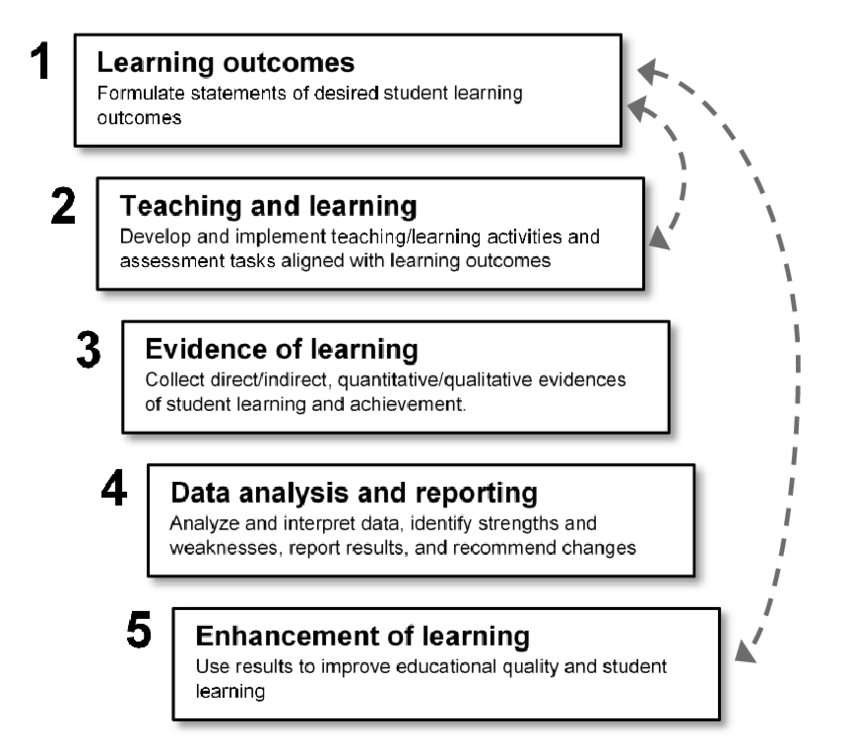Outcome-based education is a model of education that rejects the traditional focus on what the school provides to learners, in favour of making learners demonstrate that they "know and are able to do" whatever the required outcomes are.
OBE reforms emphasize setting clear standards for observable, measurable outcomes. Nothing about OBE demands the adoption of any specific outcome. For example, many countries write their OBE standards so that they focus strictly on mathematics, language, science, and history, without ever referring to attitudes, social skills, or moral values.
Click here to view a video that explains the outcomes-based learning objectives.
The key features which may be used to judge if a system has implemented an outcomes-based education system are:

The creation of a curriculum framework that outlines specific, measurable outcomes. The standards included in the frameworks are usually chosen through the area's normal political process.
A commitment not only to provide an opportunity of education, but to require learning outcomes for advancement. Promotion to the next grade, a diploma, or other reward is granted upon achievement of the standards, while extra workshops, repeating the year, or other consequences entail upon those who do not meet the standards.
Standards-based assessments that determine whether learners have achieved the stated standard. Assessments may take any form, so long as the assessments measure whether the learner knows the required information or can perform the required task.
A commitment that all learners of all groups will ultimately reach the same minimum standards. Schools may not "give up" on unsuccessful learners.
Outcomes
The emphasis in an OBE education system is on measured outcomes rather than inputs, such as how many hours learners spend in workshop, or what textbooks are provided. Outcomes may include a range of skills and knowledge. Generally, outcomes are expected to be concretely measurable, that is, "Learner can run 50 meters in less than one minute," instead of "Learner enjoys physical education workshop." A complete system of outcomes for a subject area normally includes everything from mere recitation of fact ("Learners will name three tragedies written by Shakespeare.") to complex analysis and interpretation ("Learners will analyse the social context of a Shakespearean tragedy in an essay."). Writing appropriate and measurable outcomes can be very difficult, and the choice of specific outcomes is often a source of local controversies.
Each educational agency is responsible for setting its own outcomes. Under the OBE model, education agencies may specify any outcome (skills and knowledge), but not inputs (field trips, arrangement of the school day, teaching styles). Some popular models of outcomes include the NCTM's standards-based mathematics framework and the National Science Education Standards.
Performance-Based Economy
Outcome-based methods are used in some businesses. For whole companies, outcome-based evaluations are the basis of stock exchange prices: Companies which produce higher profit growth are more valuable than companies which perform poorly. Employees who are paid for piecework or by commission are examples of traditional employment use of outcome-based pay. Alternatives include seniority systems (oldest worker gets highest pay).
Many private employers give standards-based tests to determine whether job applicants have necessary job skills (such as typing speed), and nearly all government employees must take and pass a civil service examination. Furthermore, nearly all licensed professionals, from nurses to truck drivers to beauticians, already take such tests as a condition of entering their professions. Often these tests have disproportionate failure rates for disadvantaged subgroups, such as school dropouts and impoverished people.
